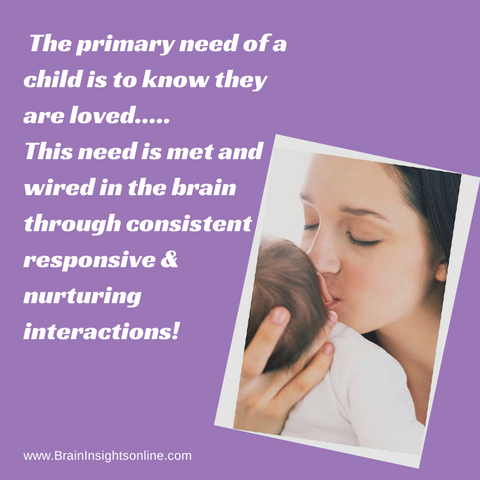"Empathy isn't knowing how you would feel if you
were in her shoes. It's understanding how she feels in her own shoes."
~ Kyle Miller
~ Kyle Miller
This quote is one I find explains empathy perfectly. A personal story of relationships between girls was shared in a recent post. It emphasizes how essential the life skill of empathy is for relationships and well-being in life.
Of course the early years of birth - 5 are the time of greatest impact in wiring the brain for relationship and empathy abilities. However, the childhood years are an important time for practicing these essential life skills. The friendship experiences during this time have a critical impact on brain pathways toward adulthood. Through social interactions, the pre-teen years are a time that continues to contribute to the development of the pre-frontal cortex. This is the area of the brain responsible for the ability to self-regulate.
Annie Fox, M.Ed., is an internationally respected parenting expert, family coach and trusted online adviser for teens. She has just released a wonderful new book to guide healthy relationships for girls ages 8-12. The Girls' Q &A Book on Friendship, is one that I had the honor of reviewing and am thrilled to share here.
My review:
“The world is going to be filled with girls that are kind, smart and self-assured as a result of this book. It’s fantastic! Annie provides fun, caring, straight forward, practical and supportive solutions for common relationship problems at a time when genuine friendships are needed more than ever! She communicates at the girls’ level so well!!”
In addition, I had the pleasure of interviewing Annie about the value of this resource for girls, educators and parents during her book tour. Enjoy learning more about Annie and this great book.
My review:
“The world is going to be filled with girls that are kind, smart and self-assured as a result of this book. It’s fantastic! Annie provides fun, caring, straight forward, practical and supportive solutions for common relationship problems at a time when genuine friendships are needed more than ever! She communicates at the girls’ level so well!!”
In addition, I had the pleasure of interviewing Annie about the value of this resource for girls, educators and parents during her book tour. Enjoy learning more about Annie and this great book.
1 Deborah: Do you find that there is a greater need for helping
girls develop healthy friendships more than ever before?
We all feel the effects
of jealousy, hurt, betrayal, rejection… but people who have high Emotional (or
Social) Intelligence skills know how to calm down before taking action. That’s
the piece that’s missing for girls (and boys) these days. When they feel upset
they grab the nearest device and use it as a weapon to get back at whomever
they’re upset with at the moment. So much damage to girls’ health and well-being
could be avoided (or minimized) if they had more tools for calming down,
developing empathy, and communicating effectively and respectfully. Those are
the skills girls need to develop healthy friendships (and, in later life)
healthy professional relationships and romantic ones as well.
2 Deborah: Is there an aspect of friendships that you find to be
most common from the girls that have contributed questions to the book?
Annie: Most common is the
misconception that “If I speak up for myself in a friendship, I am not being a
good friend.” This creates huge problems for girls because when they are upset,
they need to express themselves effectively and appropriately to the friend who
needs to hear it. (Talking behind her back doesn’t count!) But girls are often
unwilling and/or unable to initiate those conversations. So they feel miserable
and stuck in their misery. They believe that a “good friend” should never tell
a friend something negative because then she will “hurt the friend’s feelings.
And that’s mean.” So, if I, Annie, am
hurt by something my bff Deborah did, I can not tell her, otherwise I will not
be a good friend.” But Deborah is not a mind reader. If I suffer in silence,
Deborah has no way of knowing how I feel. My silence will, in fact, send the
message that it is OK for her to continue hurting me, even though it is not OK!
My silence also leaves me feeling upset and powerless, not realizing that I do
have power to change my response to this situation.
Deborah: After providing support and advice, what is the most
heartwarming story of change you have seen take place?
Annie: A girl emailed me about
having fallen for her bff’s boyfriend. She was crying herself to sleep every
night and thinking about him all the time and each time, feeling super guilty
about “betraying” her friend… even though neither her friend nor the boyfriend
ever knew she had these feelings. She also felt there was something “wrong”
with her because she had never had a boyfriend. She wrote to me recently with
an update…
“I've really gotten to be comfortable and happy with myself as I am, and I'm
happy that I've grown as a person since then. I've even given a speech similar
to yours to my other friends. I'm so much happier with my school life, my
friends, how I spent my free time, etc. now than I was a year ago, and I just
wanted to tell you that I'm doing so well now! Thanks so much for being there
for me and all the other people who come to you for help.”
As you can imagine,
that email totally made my day!
Deborah: There are many options for ways this book
can be beneficial. Is there a way that you suggest the book is used to be
most influential?
Annie: This book can be read by
a girl all by herself and it will, hopefully, feel like she is with a friend
who understands and can give her advice she can trust. The book can also be
read by a girl and her Mom or Dad. I can imagine so many great family
conversations that could be sparked by the Q&A in this book! Another way
would be for two or three girls to read the book together. That would provide a
safe context for girls to talk about some of the experiences and feelings they’ve
had (or are having). Ultimately, any reading of the book that provides food for
thought and action steps is going to empower girls and make their friendship
healthier, stronger, and more fun!
To enjoy and benefit from all that Annie shares go to Annie Fox.com
To enjoy and benefit from all that Annie shares go to Annie Fox.com


.png)






















